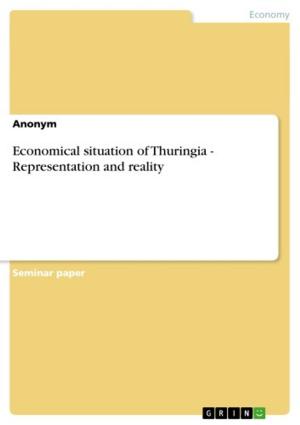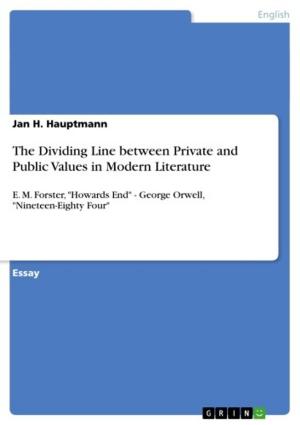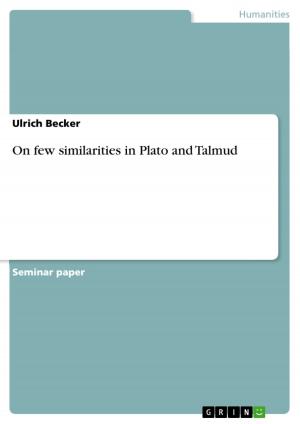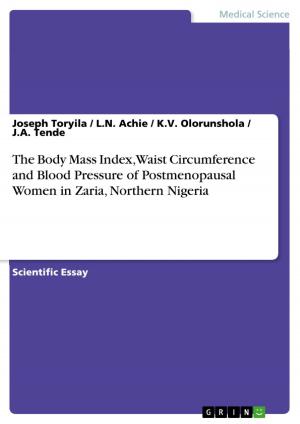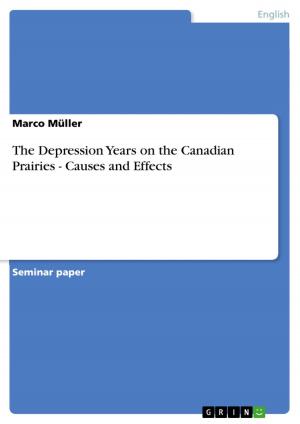Jessie's Quest for Autonomy through Suicide in Marsha Norman's night Mother
Nonfiction, Entertainment, Drama, Anthologies| Author: | Peter Brüstle | ISBN: | 9783638188739 |
| Publisher: | GRIN Publishing | Publication: | April 30, 2003 |
| Imprint: | GRIN Publishing | Language: | English |
| Author: | Peter Brüstle |
| ISBN: | 9783638188739 |
| Publisher: | GRIN Publishing |
| Publication: | April 30, 2003 |
| Imprint: | GRIN Publishing |
| Language: | English |
Seminar paper from the year 2001 in the subject American Studies - Literature, grade: 1,3 (A), University of Freiburg (English Seminar), course: Proseminar: Death in American Literature, 10 entries in the bibliography, language: English, abstract: 'night, Mother, a more recent American play, which, in form of a dialogue between a mother and her adult daughter deals with the daughter's desperation for missing autonomy and her decision to gain control over her life by ending it, has met with controversial reception from critics after winning the Pulitzer Prize in 1983. On the one hand it was celebrated as a successful drama by a female playwright, whereas it was denied on the other hand as betraying Feminism. Still, in my paper this struggle will not be continued. What I am interested in here is, how the play treats the subject of free death as a specific way of dying. In our current society this subject arouses either greed for sensation or it is looked upon as a taboo and the public treatment or defense of it is normally denied. Examining the plays reception by critics it is striking that the protagonist's carried out death is mainly deemed positive or even compared with a heroic deed. In the face of this debate I will examine Jessie's desperation with her life and show, if she is in the end really successful in reaching autonomy and a personal identity through suicide. The first objects of my research are going to be Jessie's current situation, her inward state of mind and how she comes to the decision that death might constitute a solution to her problems. The next step will be a discussion of this decision and its justification with the help of two different works on suicide, of which one is rather a scientific study and the other one a philosophical treatise on the topic. Finally, I will have a look at those critiques which are in favor of Jessie's suicide as a positive and successful action and put them in context with the plot of the play, which will lead to a conclusion of what Jessie has actually reached and in how far her suicide might be seen as a wrong reaction.
Seminar paper from the year 2001 in the subject American Studies - Literature, grade: 1,3 (A), University of Freiburg (English Seminar), course: Proseminar: Death in American Literature, 10 entries in the bibliography, language: English, abstract: 'night, Mother, a more recent American play, which, in form of a dialogue between a mother and her adult daughter deals with the daughter's desperation for missing autonomy and her decision to gain control over her life by ending it, has met with controversial reception from critics after winning the Pulitzer Prize in 1983. On the one hand it was celebrated as a successful drama by a female playwright, whereas it was denied on the other hand as betraying Feminism. Still, in my paper this struggle will not be continued. What I am interested in here is, how the play treats the subject of free death as a specific way of dying. In our current society this subject arouses either greed for sensation or it is looked upon as a taboo and the public treatment or defense of it is normally denied. Examining the plays reception by critics it is striking that the protagonist's carried out death is mainly deemed positive or even compared with a heroic deed. In the face of this debate I will examine Jessie's desperation with her life and show, if she is in the end really successful in reaching autonomy and a personal identity through suicide. The first objects of my research are going to be Jessie's current situation, her inward state of mind and how she comes to the decision that death might constitute a solution to her problems. The next step will be a discussion of this decision and its justification with the help of two different works on suicide, of which one is rather a scientific study and the other one a philosophical treatise on the topic. Finally, I will have a look at those critiques which are in favor of Jessie's suicide as a positive and successful action and put them in context with the plot of the play, which will lead to a conclusion of what Jessie has actually reached and in how far her suicide might be seen as a wrong reaction.


